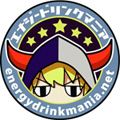Glucose
Glucose in Energy Drinks
Glucose, also known as dextrose, is a monosaccharide that dissolves easily in water and has a sweet taste. It serves as an efficient energy source for our physical activities. Glucose is especially used in large amounts by the brain for energy, which is why you may feel like your mind is working faster after consuming an energy drink—this is related to the nutritional support provided by glucose (grape sugar).
Effects of Glucose
- Pre-exercise energy boost
- Helps delay muscle breakdown when consumed after exercise
Glucose (grape sugar) is absorbed quickly in the intestines and can be used as an energy source. However, it raises blood sugar levels rapidly, which may result in a risk of hypoglycemia due to the subsequent drop in blood sugar.
However, the amount of glucose in energy drinks is on par with that found in other carbonated drinks like cola, so if you experience hypoglycemia or feel faint after drinking cola or Pepsi, you should take care. In general, energy drinks are not considered a major concern for causing hypoglycemia.
Additionally, during intense workouts or muscle training, even if you are drinking a sports drink containing glucose, the release of hormones like adrenaline typically prevents the symptoms of hypoglycemia from occurring.
 Author: Energy Drink-kun
Author: Energy Drink-kun
In 2001, while living in the United States, I encountered energy drinks through the dance scene and was deeply impressed. After returning to Japan, I found that energy drinks were considered novelty beverages, so I established a comprehensive website in 2013 to share the true appeal of energy drinks. As an energy drink enthusiast, I began drinking them seriously again, collecting over 7,000 varieties of energy drinks from various countries. I am also active as a critic and expert, receiving media interviews.


 Since 2001, Energy Drink Maniac has been drinking energy drinks and providing the most detailed reviews of global energy drinks based on firsthand research.
Since 2001, Energy Drink Maniac has been drinking energy drinks and providing the most detailed reviews of global energy drinks based on firsthand research.